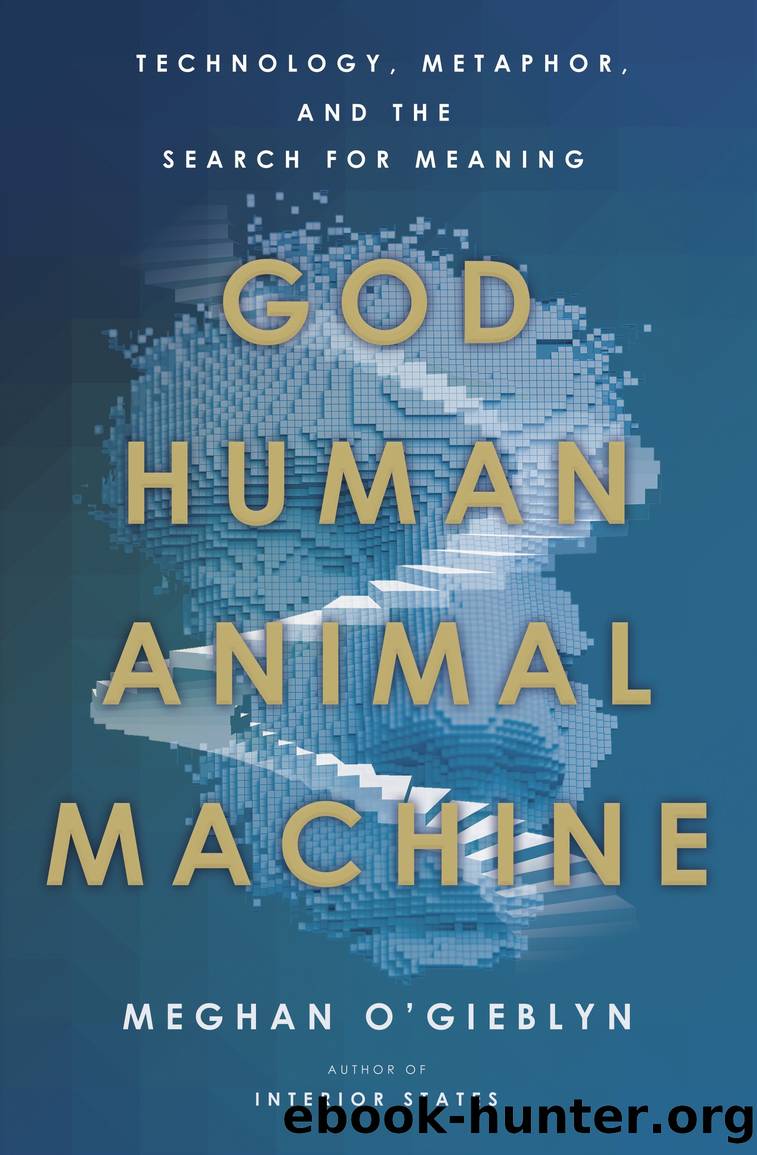God, Human, Animal, Machine by Meghan O'Gieblyn

Author:Meghan O'Gieblyn [O'Gieblyn, Meghan]
Language: eng
Format: epub
Publisher: Knopf Doubleday Publishing Group
Published: 2021-08-24T00:00:00+00:00
* * *
â
Over the following days of the conference, I continued to experience echoes, strange coincidences, like the one that led me to the cemetery where Bohr and Kierkegaard were buried. I would read something in one of the books Iâd brought with meâa new theory, a thinker whose name Iâd never encounteredâand then someone at the conference would mention the same name or the same idea only hours later. I could not help feeling that such coincidences were imbued with meaningâsigns from the universeâthough I knew this was unlikely, particularly when considered from a statistical standpoint. (How many words, images, and names did I encounter in a given day? It never occurred to me to consider all the ones that were not repeated.) Our brains have evolved to detect patterns and attribute significance to events that are entirely random, imagining signal where there is mostly noise. This tendency is probably hypertrophied in writers, who are constantly seeing the world in terms of narrative. In fact, for a while, encountering this very sentiment in books became yet another doubling in my life. âWhen I am absorbed in writing a novel, reality starts twisting to reflect and inform everything Iâve been thinking about in my work,â Ottessa Moshfegh notes in an essay. Virginia Woolf, writing in her diary in 1933, expressed essentially the same thing: âWhat an odd coincidence! that real life should provide precisely the situation I am writing about!â The novelist Kate Zambreno claims that when she is working, she often sees the same names and the same books everywhere: âI begin to make connections with everythingâI see literature everywhere, a vast referentiality.â
Of course, this âvast referentialityâ is in other contexts a sign of madness. In her biography of the mathematician John Nash, A Beautiful Mind, Sylvia Nasar writes that Nashâs âlongstanding conviction that the world was rational,â which had led him to study mathematics, slid almost imperceptibly into schizophrenia, wherein he began finding hidden messages in the New York Times and deep cosmic significance in the number of red neckties he spotted on the MIT campus. His desire to find the underlying structure of the world through geometry and mathematics evolved, Nasar observes, âinto a caricature of itself, turning into an unshakable belief that everything had meaning, everything had a reason, nothing was random or coincidental.â
It was difficult to avoid attributing the reappearance of these patterns in my lifeâand the temptation to believe they were signsâto the fact that Iâd returned to these cosmological questions Iâd long ago vowed to avoid. Revisiting Bostromâs theory for the presentation had reopened a number of questions Iâd never fully resolved, and they came to me, unbidden, during the panels I attended and on my walks to and from the hotel. Since Iâd first encountered the simulation hypothesis a decade earlier, the notion that the universe was informational had gained more mainstream clout. I had never found the idea of the informational universe very convincing, but it occurred to me now that Bostromâs hypothesis could, at least in theory, explain some of the gaps.
Download
This site does not store any files on its server. We only index and link to content provided by other sites. Please contact the content providers to delete copyright contents if any and email us, we'll remove relevant links or contents immediately.
I Have Something to Say by John Bowe(3284)
What Happened to You? by Oprah Winfrey(1473)
Doesn't Hurt to Ask by Trey Gowdy(1400)
Einstein: His Life and Universe by Walter Isaacson(1315)
Solutions and Other Problems by Allie Brosh(1029)
Disloyal: A Memoir by Michael Cohen(1021)
American Dreams by Unknown(860)
Don't Call it a Cult by Sarah Berman(838)
Infinite Circle by Bernie Glassman(829)
Group by Christie Tate(810)
Home for the Soul by Sara Bird(807)
Talk of the Ton by unknow(734)
The Silent Cry by Cathy Glass(681)
Total F*cking Godhead by Corbin Reiff(663)
Severed by John Gilmore(652)
Searching for Family and Traditions at the French Table by Carole Bumpus(647)
The Battle of Mogadishu by Matt Eversmann & Dan Schilling(611)
Before & Laughter by Jimmy Carr(602)
Things I Wish I Knew Before My Mom Died by Ty Alexander(599)
